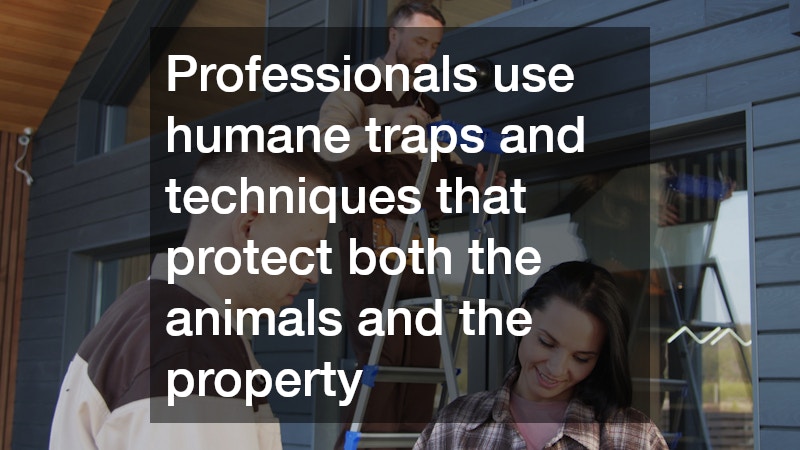Raccoons can be adorable, but they also pose significant risks when they invade your property. Understanding why professional help is essential for safe raccoon removal is crucial for homeowners. These nocturnal creatures are not just cute; they are known for their cleverness and adaptability, making them challenging to handle.
It may seem tempting to try to deal with an infestation on your own, but the consequences of DIY efforts can be severe. Trusting professionals for raccoon removal is a necessary step for any homeowner facing this issue.
What Are the Risks of DIY Raccoon Removal?
Attempting to remove raccoons on your own can lead to injury and disease exposure. Raccoons are wild animals that may become aggressive when threatened, posing a risk of bites or scratches. Furthermore, they are known carriers of various diseases, including rabies, which can be transmitted through saliva or bodily fluids. Encountering a raccoon unexpectedly can lead to panic, and in trying to defend yourself, you may sustain injuries that require medical attention.
Moreover, DIY methods may not only fail to eliminate the pest, but they could also exacerbate the situation. If a raccoon feels cornered or trapped, it might try to escape, causing significant damage to your property in the process. Homeowners may inadvertently create more entry points for raccoons, leading to a recurring cycle of infestation. Trained professionals understand raccoon behavior and can approach the situation without causing extra harm.
Additionally, there’s the aspect of legal implications associated with wildlife removal. In many regions, there are regulations governing the handling and removal of raccoons. Failing to adhere to these laws can result in hefty fines or legal action against homeowners. Professionals are well-versed in local wildlife laws, ensuring that the removal process is both legal and humane.
How Can a Professional Ensure Safe Removal?
Professionals use humane traps and techniques that protect both the animals and the property, ensuring a stress-free process. Expert wildlife removal specialists are trained to assess the situation accurately, applying their knowledge of animal behavior to safely capture the raccoons without harm. They utilize specialized equipment that minimizes stress on the animals while effectively removing them from your property.
Furthermore, professionals understand the importance of ensuring that removal methods align with ethical practices. They prioritize humane solutions that comply with local wildlife regulations. This commitment to ethical treatment not only protects the raccoons but also upholds the values of responsible wildlife management.
Beyond removal, professionals offer additional services such as cleanup and repairs. Raccoons can leave behind droppings, urine, and food remnants that can attract pathogens and pests. A thorough cleanup by professionals ensures that your space is safe and sanitary. Coupled with exclusion techniques to seal entry points, the process secures your home against future infestations.
What Signs Indicate a Raccoon Infestation?
Knowing the signs of an infestation can help you act quickly. Professionals often share common indicators, such as unusual noises coming from attics or crawl spaces during the night. If you notice overturned garbage cans or raccoon tracks in your yard, these could be clear signs of their presence. Understanding these indicators allows homeowners to alert experts sooner, increasing the likelihood of successful removal.
Another sign might be evidence of nesting. Raccoons tend to create nests in hidden areas that provide shelter, often evident through damaged insulation or torn items. Professionals are trained to identify not only overt signs but also subtle indicators that homeowners might overlook. Their expertise ensures that no potential evidence is missed during the assessment.
Physical signs such as scratch marks on doors, roofs, or vents can also signal an infestation. Recognizing these marks can help in notifying wildlife control specialists of possible entry points and active travel paths. Early detection can drastically reduce the associated risks and complications related to a raccoon invasion.
How Can You Prevent Future Raccoon Infestations?
After removing raccoons, preventative measures are essential. Professionals provide valuable tips and solutions for lasting protection. One primary recommendation often includes securing trash bins and removing food sources that may attract wildlife to your property. This proactive approach can significantly reduce the chances of future infestations.
Installing fencing or barriers around your property is another effective measure professionals recommend. Strong barriers can act as physical deterrents, while ensuring any potential openings in your home’s exterior are sealed can further limit access points for raccoons. Keeping yards clean and free of debris that may serve as nests or hiding places is also advised.
Ongoing monitoring is beneficial to catch new signs of raccoons quickly. Professional experts often discuss establishing regular check-ups of your property, depending on local wildlife activity patterns. Staying vigilant ensures you can address any potential issues before they develop into significant infestations.
Choosing a professional for raccoon removal not only protects your health and safety but also ensures humane treatment of wildlife. Investing in professional services can save you time, money, and stress in the long run. Understanding the risks of DIY removal highlights the necessity of relying on trained experts for these encounters. Ultimately, by taking informed action against raccoon infestations, homeowners can enjoy their living spaces without fear of these wild intruders.

